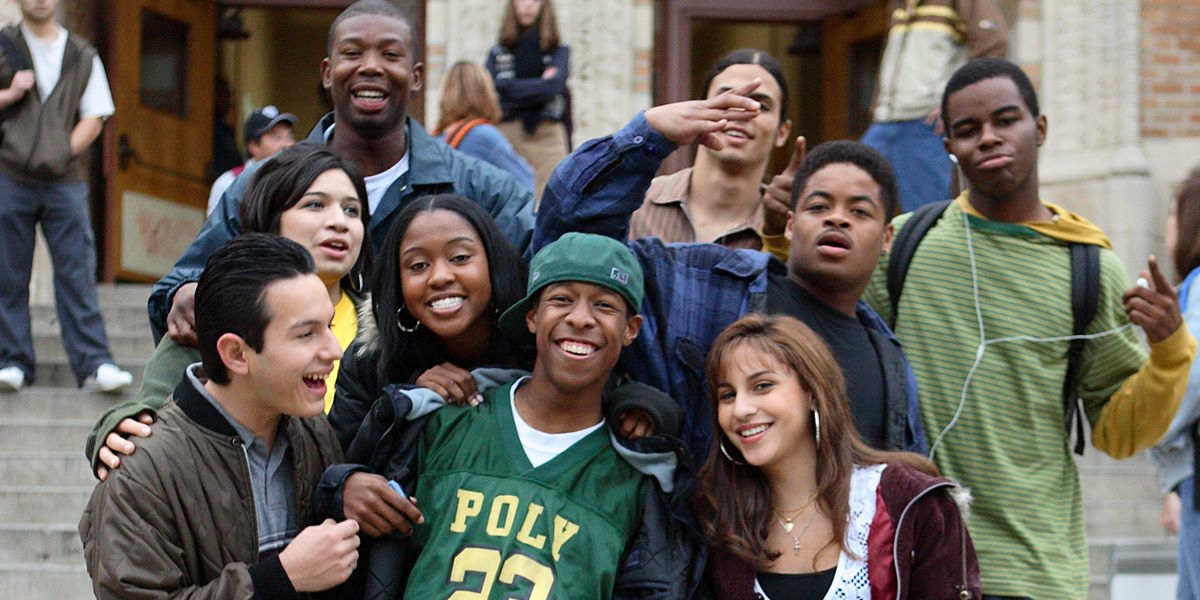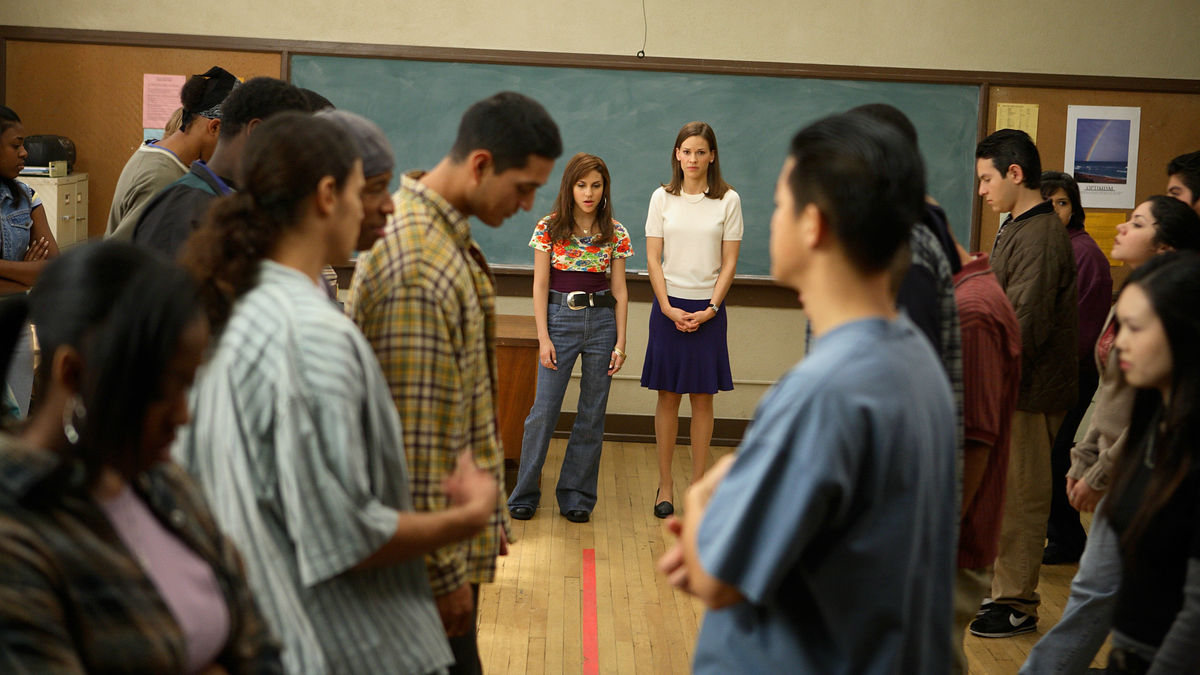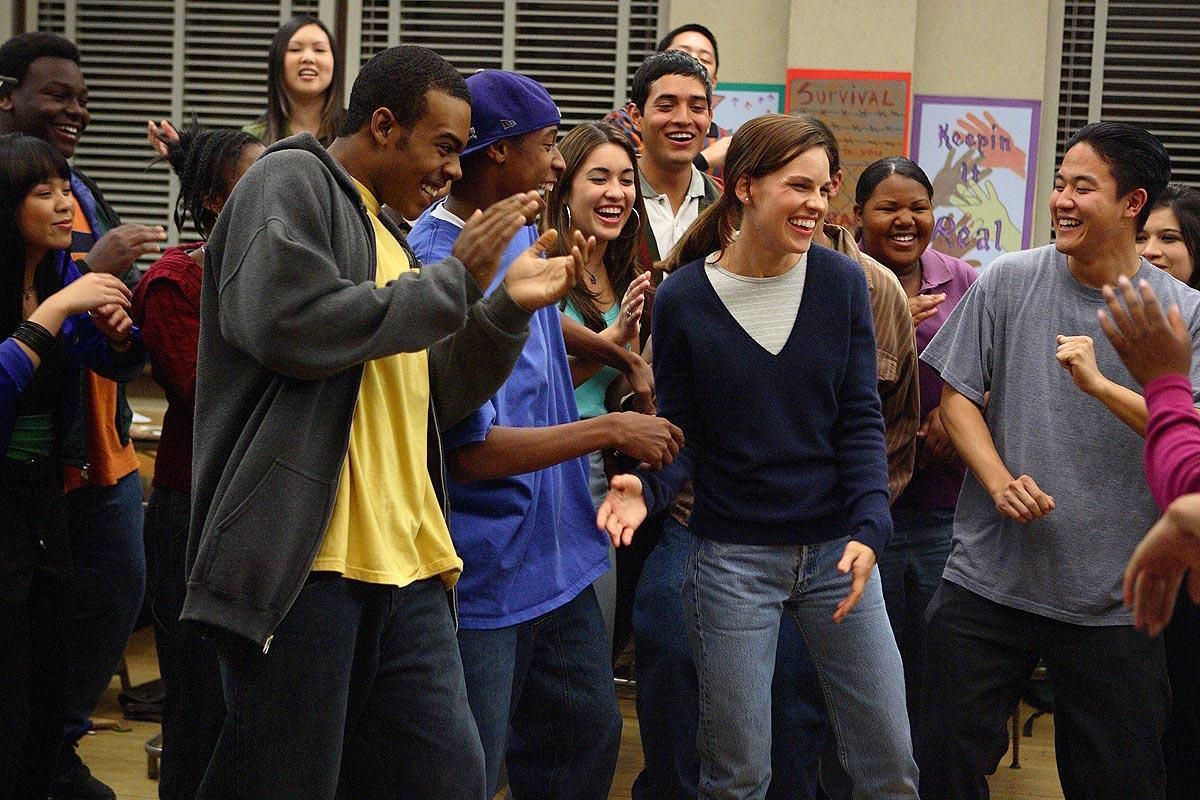“Freedom Writers” is a 2007 movie based on the true story of Erin Gruwell, a teacher who inspired her underprivileged students to learn and succeed despite their difficult circumstances. The movie highlights the power of education and the impact of positive mentorship in shaping the lives of young people. Through her unorthodox teaching methods and personal investment in her students, Gruwell was able to help her class of at-risk students find their voices and achieve academic success. The movie showcases the transformative power of education and mentorship in the lives of young people, and the importance of providing access to quality education and positive role models for underprivileged youth. The purpose of this blog post is to explore these themes further and discuss the practical takeaways for supporting underprivileged youth through education and mentorship.

Overview of the Movie
“Freedom Writers” is a drama film directed by Richard LaGravenese, released in 2007. The movie is based on the true story of Erin Gruwell, a high school teacher in Long Beach, California, who inspired her students to write about their experiences during the LA riots of 1992. The movie shows the struggles of Gruwell and her students as they work together to overcome social and cultural barriers, and find hope and inspiration through education and mentorship.
Plot Summary: Erin Gruwell (Hilary Swank) is a new teacher at a racially divided high school in Long Beach, California. Her class is made up of underprivileged students from different ethnic and social backgrounds, who have little interest in learning and have been written off by the school system. However, Gruwell refuses to give up on her students and sets out to find ways to inspire and engage them.
She begins by introducing them to the diary of Anne Frank, which resonates with her students who are able to relate to the experiences of oppression and discrimination. She then starts a project where students write about their own experiences, which helps them express their feelings and overcome their past traumas.
As the students begin to connect with each other and with their teacher, they start to challenge their preconceived notions about race and ethnicity, and learn to see beyond their differences. Gruwell also seeks support from mentors and experts, who help her create a safe and inclusive learning environment for her students.
Main Characters and their Backgrounds:
- Erin Gruwell (Hilary Swank): A new teacher at a high school in Long Beach, California, who is determined to inspire and engage her students.
- Eva Benitez (April Lee Hernandez): A student who is initially hostile towards Gruwell, but later becomes one of her closest allies.
- Marcus (Jason Finn): A student who has been in and out of juvenile detention, and who initially shows little interest in learning.
- Jamal Hill (Deance Wyatt): A student who is struggling to come to terms with his brother’s involvement in a gang.
- Andre Bryant (Mario): A student who is dealing with the pressures of being in a gang, and who is initially skeptical of Gruwell’s methods.
The movie touches on several important themes, including:
- The transformative power of education: The movie shows how Gruwell is able to inspire her students and transform their lives through education, despite the challenges they face.
- The impact of positive mentorship: The movie highlights the importance of having positive role models and mentors in the lives of young people, and how they can help them overcome obstacles and achieve success.
- The effects of discrimination and racism: The movie portrays the harsh reality of discrimination and racism in the US, and how it affects young people, particularly those from underprivileged backgrounds.
- The value of self-expression: The movie emphasizes the importance of self-expression and creative outlets for young people, as a way to deal with past traumas and connect with others.

The Power of Education
Education has the power to transform lives, especially for underprivileged youth who often face significant barriers to success. By providing access to quality education and supportive learning environments, students can develop critical thinking skills, creativity, and a sense of empowerment that can help them overcome challenges and achieve their goals.
Examples of How Erin Gruwell Used Education to Empower Her Students: Erin Gruwell, the teacher portrayed in “Freedom Writers,” used education to empower her students in several ways. She created a safe and inclusive learning environment that encouraged students to express themselves, and she used literature and writing as tools to help her students explore their identities and experiences. Gruwell also sought support from mentors and experts, who helped her create a curriculum that was relevant and engaging for her students.
One of the most powerful examples of how Gruwell used education to empower her students was through the Freedom Writers Diary project. The project allowed her students to write about their experiences, including their struggles with poverty, gang violence, and discrimination. By giving them a platform to share their stories, Gruwell was able to help her students process their past traumas and connect with each other in meaningful ways.
Importance of Providing Access to Quality Education for Underprivileged Youth: Access to quality education is critical for underprivileged youth, as it provides a pathway to success and a means of breaking the cycle of poverty. Without access to quality education, young people may be limited in their opportunities and face significant barriers to achieving their full potential.
Unfortunately, underprivileged youth often have limited access to quality education due to a lack of resources and systemic inequalities in the education system. This can lead to lower academic achievement, fewer opportunities for career advancement, and a perpetuation of the cycle of poverty.
To address these challenges, it is important to provide underprivileged youth with access to quality education that is inclusive, culturally responsive, and relevant to their experiences. This can be achieved through initiatives that promote equal access to education, such as increased funding for schools in underprivileged areas, targeted mentorship programs, and policies that promote diversity and inclusion in schools.
In conclusion, “Freedom Writers” highlights the transformative power of education and the importance of providing access to quality education for underprivileged youth. By empowering students through education and mentorship, we can help young people overcome barriers and achieve their full potential.

The Impact of Positive Mentorship
“Freedom Writers” portrays several examples of positive mentorship that helped young people overcome challenges and achieve success. Erin Gruwell, the teacher in the movie, serves as a mentor to her students by creating a safe and inclusive learning environment and providing them with the support they need to succeed. Gruwell’s mentorship also extends beyond the classroom, as she seeks support from mentors and experts who help her create a curriculum that is relevant and engaging for her students.
Additionally, some of Gruwell’s students serve as positive role models and mentors for their peers. For example, Eva Benitez serves as a mentor to her younger sister, helping her to avoid the pitfalls of gang involvement and to stay focused on her education.
How Mentorship Can Help Young People Overcome Challenges and Achieve Success: Positive mentorship can play a critical role in helping young people overcome challenges and achieve success. Mentors provide young people with guidance, support, and encouragement, helping them to navigate difficult situations and to develop the skills and confidence they need to succeed.
Mentorship can also provide young people with positive role models, who can serve as examples of how to overcome challenges and achieve success. Through positive mentorship, young people can learn valuable life skills, such as problem-solving, goal-setting, and communication, that can help them succeed in all aspects of their lives.
Importance of Positive Role Models in Young People’s Lives: Positive role models can have a significant impact on young people’s lives, helping them to develop the skills and qualities they need to succeed. Role models can inspire young people to work hard, to set goals, and to persevere in the face of challenges.
Positive role models can also help young people develop important social and emotional skills, such as empathy, resilience, and self-awareness. Through positive role models, young people can learn how to build healthy relationships, how to cope with stress and adversity, and how to develop a sense of purpose and meaning in their lives.
In conclusion, “Freedom Writers” highlights the importance of positive mentorship and role models in young people’s lives. By providing young people with guidance, support, and positive examples to follow, we can help them overcome challenges and achieve success.

Lessons Learned from “Freedom Writers”
“Freedom Writers” can serve as an inspiration for educators, mentors, and young people to make a difference in the lives of underprivileged youth through education and mentorship. The movie highlights the power of education and mentorship in transforming the lives of young people and shows how individuals can make a difference by providing support and guidance.
Practical Takeaways for Supporting Underprivileged Youth through Education and Mentorship:
- Creating a Safe and Inclusive Learning Environment: Teachers and mentors can create a safe and inclusive learning environment by being open-minded, respectful, and understanding of the unique challenges and experiences of underprivileged youth. Creating a safe and inclusive learning environment can help students feel valued and supported, which can increase their engagement and motivation to learn.
- Building Positive Relationships: Building positive relationships with students is critical for successful mentorship. By taking the time to get to know students, mentors and educators can gain a better understanding of their needs and strengths, and tailor their support and guidance accordingly.
- Providing Access to Resources: Underprivileged youth often face a variety of obstacles that can limit their access to resources and opportunities. Providing access to resources such as books, computers, and other educational materials can help level the playing field and give students the tools they need to succeed.
- Encouraging Goal-Setting and Planning: Goal-setting and planning can help students develop a sense of purpose and direction, and can provide a roadmap for success. Teachers and mentors can help students set achievable goals and create a plan of action for achieving them.
- Encouraging Resilience and Perseverance: Students who face adversity often need to develop resilience and perseverance to overcome obstacles and achieve their goals. Mentors and educators can encourage students to stay positive, to learn from their mistakes, and to persevere through difficult times.
In conclusion, “Freedom Writers” can serve as an inspiration for educators, mentors, and young people to support underprivileged youth through education and mentorship. By creating a safe and inclusive learning environment, building positive relationships, providing access to resources, encouraging goal-setting and planning, and fostering resilience and perseverance, we can help underprivileged youth overcome obstacles and achieve success.

